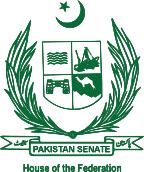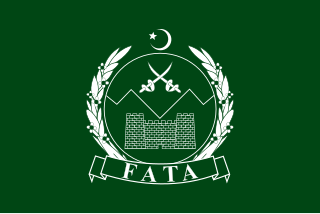Related Research Articles

The Twenty-seventh Amendment to the United States Constitution states that any law that increases or decreases the salary of members of Congress may take effect only after the next election of the House of Representatives has occurred. It is the most recently adopted amendment but was one of the first proposed.

The Constitution of Pakistan, also known as the 1973 Constitution, is the supreme law of Pakistan. The document guides Pakistan's law, political culture, and system. It sets out the state's outline, the fundamental rights of the population, the state's law and orders, and also the structure and establishment of the institutions and the armed forces. Drafted by the government of Zulfikar Ali Bhutto, with additional assistance from the country's opposition parties, it was unanimously approved by the 5th Parliament on 10 April and ratified on 14 August 1973. The first three chapters establish the rules, mandate, and separate powers of the three branches of the government: a bicameral legislature; an executive branch governed by the Prime Minister as chief executive; and an apex federal judiciary headed by Supreme Court. The Constitution designates the President of Pakistan as a ceremonial Head of State who is to represent the unity of the state. The first six articles of the constitution outline the political system as federal parliamentary republic system; as well as Islam as its state religion. The Constitution also encapsulates provisions stipulating the legal system's compliance with Islamic injunctions contained in the Quran and Sunnah.

The Prime Minister of Pakistan is the head of government of the Islamic Republic of Pakistan. Executive authority is vested in the prime minister and his chosen cabinet, despite the president of Pakistan serving as the nominal head of executive. The prime minister is often the leader of the party or the coalition with a majority in the lower house of the Parliament of Pakistan, the National Assembly where he serves as Leader of the House. Prime minister holds office by virtue of their ability to command the confidence of the National Assembly. The prime minister is designated as the "Chief Executive of the Islamic Republic".
The Twenty-first Amendment or 21st Amendment may refer to the:

The Senate of Pakistan or Aiwān-e-Bālā Pākistān, constitutionally the House of the Federation, is the upper house of the bicameral Parliament of Pakistan. As of 2023, It has a maximum membership of 100, of which 92 are elected by the provincial legislatures using single transferable vote. Four represent the Federal Capital and another four are representing former Federally Administered Tribal Areas, until membership expiration in 2024. Members sit for terms lasting six years, with half of the house up for election every three years. Unlike the National Assembly, the Senate is a continuing chamber and hence not subject to dissolution.

The Federally Administered Tribal Areas, commonly known as FATA, was a semi-autonomous tribal region in north-western Pakistan that existed from 1947 until being merged with the neighbouring province of Khyber Pakhtunkhwa in 2018 through the Twenty-fifth amendment to the constitution of Pakistan. It consisted of seven tribal agencies (districts) and six frontier regions, and were directly governed by the federal government through a special set of laws called the Frontier Crimes Regulations.
This is a list of all the amendments to the Constitution of Pakistan.

The Eleventh Amendment Bill to the Constitution of Pakistan was presented in the Senate on 31 August 1989. It was moved by Senators Mr. Muhammad Ali Khan, Dr. Noor Jehan Panezai and Syed Faseih Iqbal. The Amendment sought to restore the seats for Women in National Assembly to 20. The bill was later withdrawn after the Government gave assurance that they intend to introduce the same bill themselves soon.
The Sixteenth Amendment to the Constitution of Pakistan was passed by the National Assembly on July 27, 1999, by the Senate on June 3, 1999 and promulgated on August 5, 1999.
Twenty-first Amendment to the Constitution of Pakistan was passed by both the National Assembly of Pakistan and Senate of Pakistan on January 6, 2015, and received the assent of the President on January 7, 2015. The Bill amended the Article 175 and the First Schedule of the Constitution. It also has a self-contained sunset clause, which causes the amendments to expire on January 7, 2017.
The Twenty-second Amendment of the Constitution of Pakistan, officially known as the Constitution Act, 2016, sets to amend the procedure for the appointment, qualifications and other prerequisites for the chief election commissioner (CEC) and four members of the Election Commission of Pakistan (ECP).

The Twenty-fifth Amendment to the Constitution of Pakistan was passed by the Parliament of Pakistan and the Khyber Pakhtunkhwa Assembly in May 2018. Under the amendment, the Federally Administered Tribal Areas (FATA) and Provincially Administered Tribal Areas (PATA) are to be merged with the province of Khyber Pakhtunkhwa (KP).
The Constitution Act, 2017 was a proposed amendment to the Constitution of Pakistan which called for an increase in pension payments for the widows of judges. The amendment was approved by the standing committee of the National Assembly of Pakistan in February 2017. The bill was never adopted and never became part of Constitution of Pakistan as an amendment.
The Twenty-third Amendment to the Constitution of Pakistan, officially known as the Constitution Act, 2017, grants legal cover to military courts. The amendment was assented to by President Mamnoon Hussain in March 2017.
The Twenty-fourth Amendment to the Constitution of Pakistan, officially known as the Constitution Act, 2017, allows for the adjustment of seats in the Parliament of Pakistan in response to the provisional results of the 2017 Census. The overall number of seats in the National Assembly of Pakistan will remain the same, with Punjab losing seats, Balochistan and Khyber Pakhtunkhwa gaining seats, and Sindh retaining the same number of seats.
The Constitution Act, 2017 was a proposed amendment to the Constitution of Pakistan aimed at restoration of delegation powers of the federal government to its officers or subordinate authorities which weren't included in the Eighteenth Amendment to the Constitution of Pakistan. The Constitution Act, 2017, introduced to the National Assembly of Pakistan sought to amend Article 90, 99, and 139 of the Constitution.
The Constitution Act, 2017, was a proposed amendment to the Constitution of Pakistan, which aimed to implement changes recommended by the Parliamentary Committee on Electoral Reforms.
The Constitution Act, 2017 was a proposed amendment to the Constitution of Pakistan seeking to allow the federal cabinet to authorize a minister or state minister to advise the President of Pakistan instead of the Prime Minister.
The Constitution Act, 2017 was a proposed amendment to the Constitution of Pakistan seeking to create seats for the Federally Administered Tribal Areas in the Khyber Pakhtunkhwa Assembly and establish a new judicial system in the tribal belt. The amendment would have added new provisions to the Constitution to create room for FATA lawmakers in the Khyber Pakhtunkhwa Assembly after the merger of FATA and Khyber Pakhtunkhwa. The amendment was introduced to the National Assembly of Pakistan alongside the Tribal Areas Rewaj Act.
References
- ↑ "28th and 29th constitutional amendment Bills introduced in NA". Times of Islamabad. 2017-03-10. Retrieved 2018-05-29.